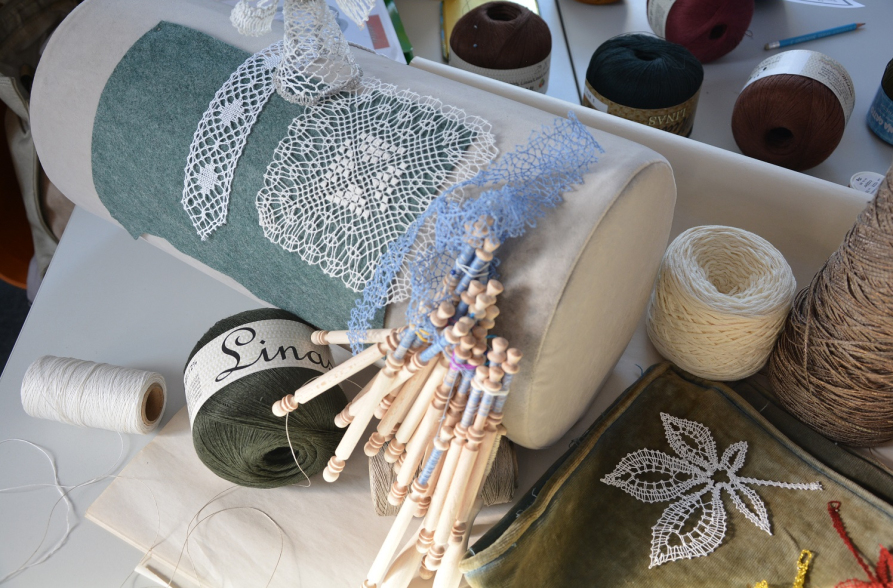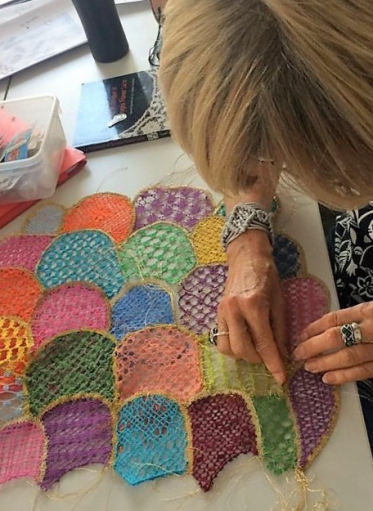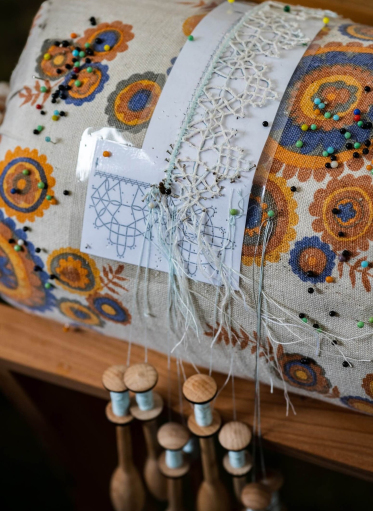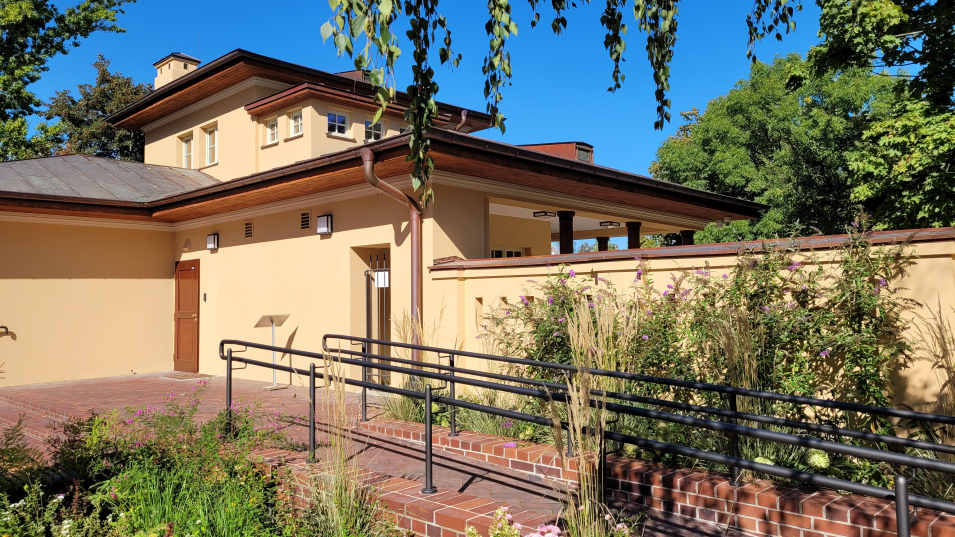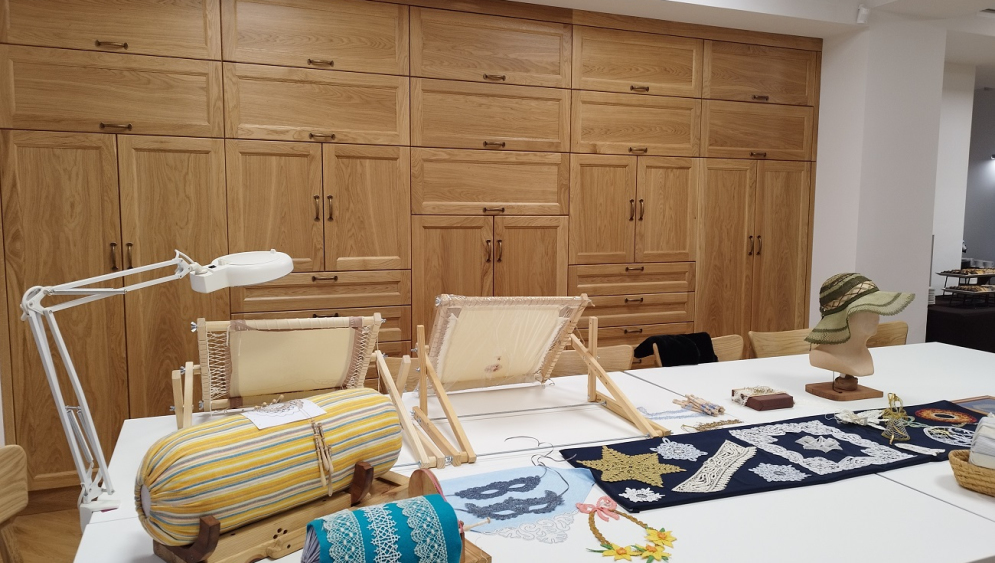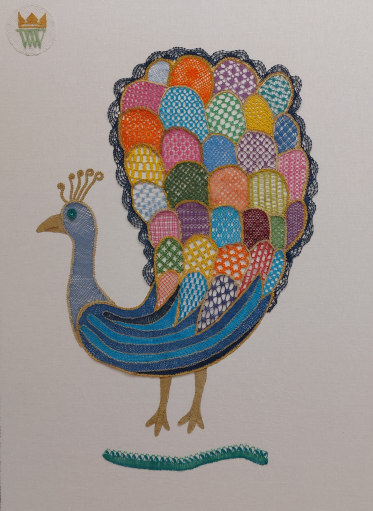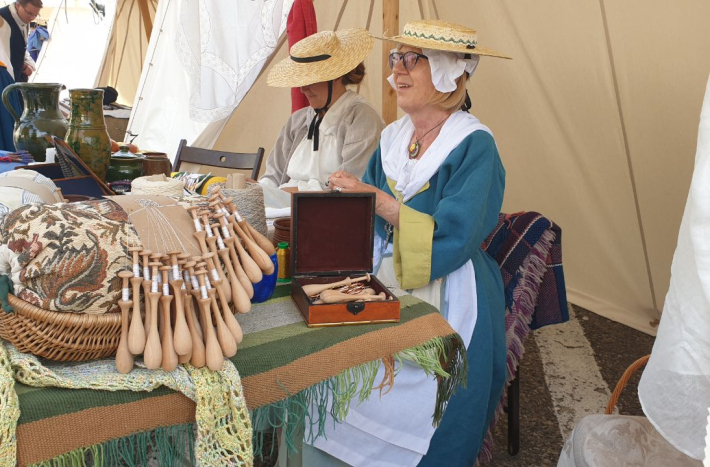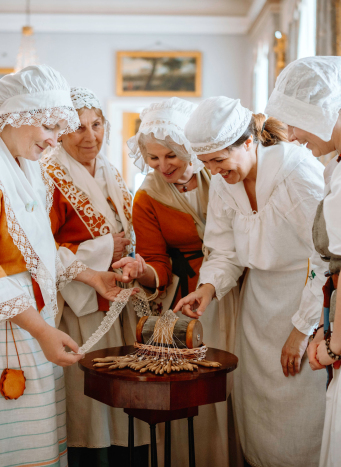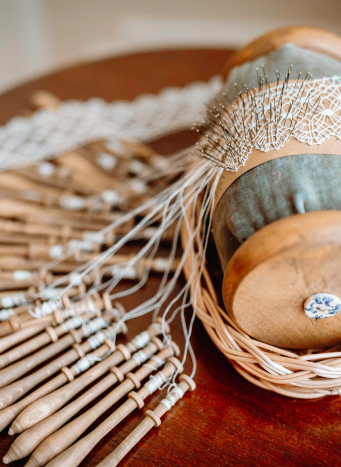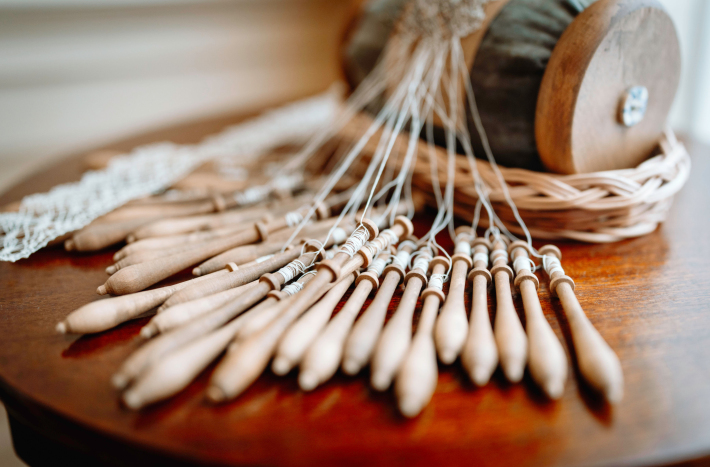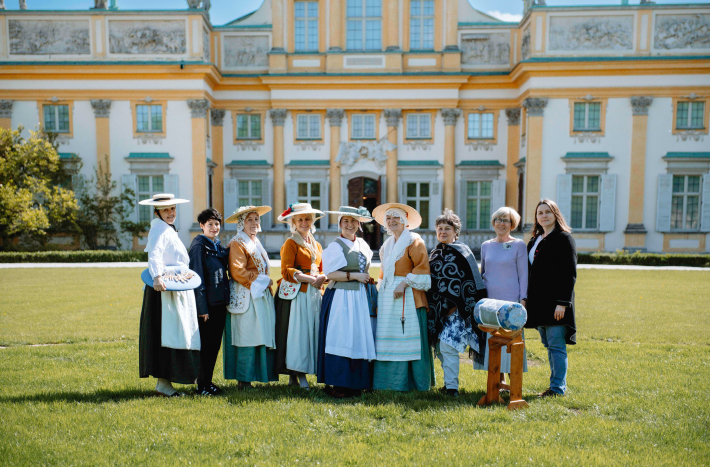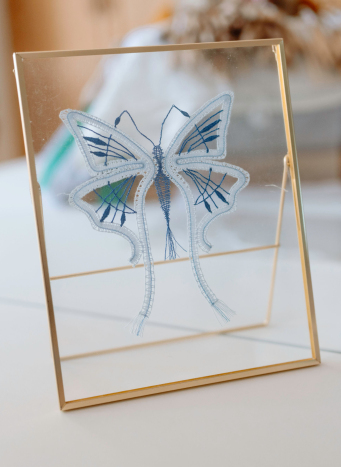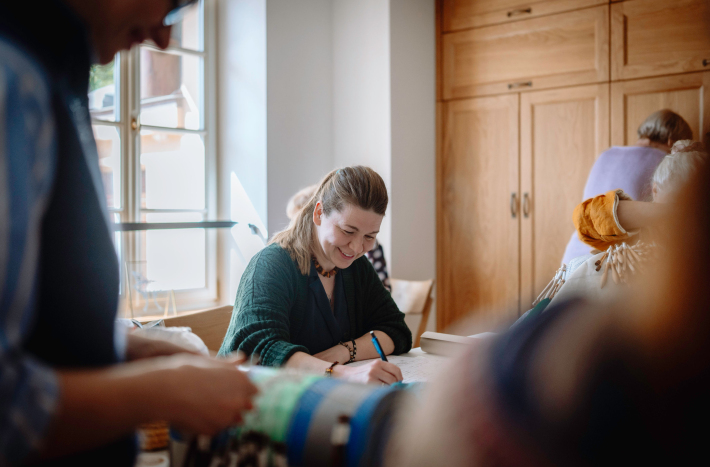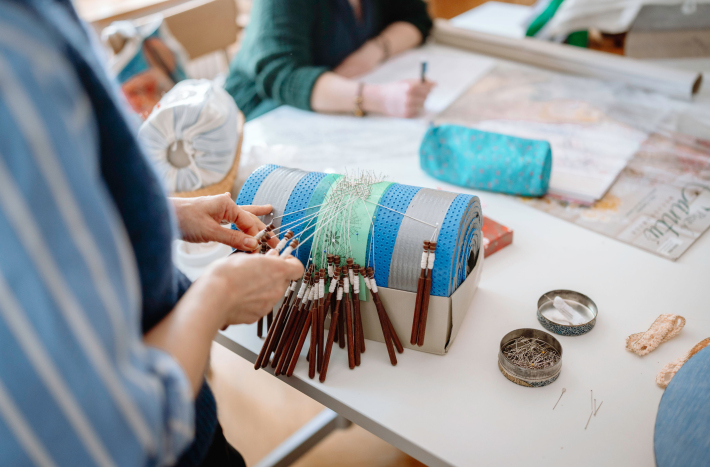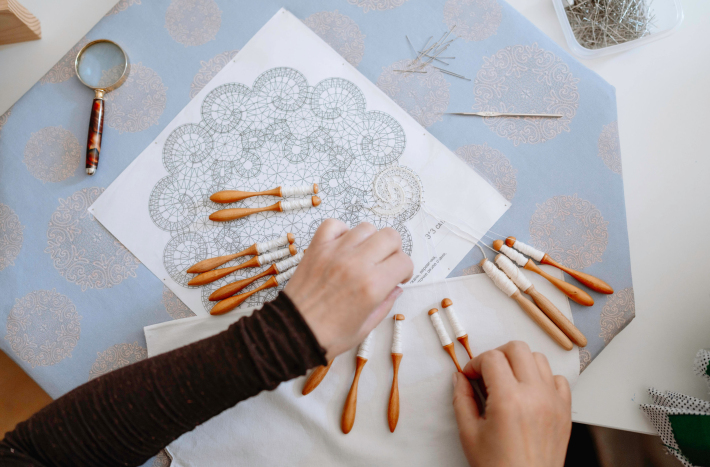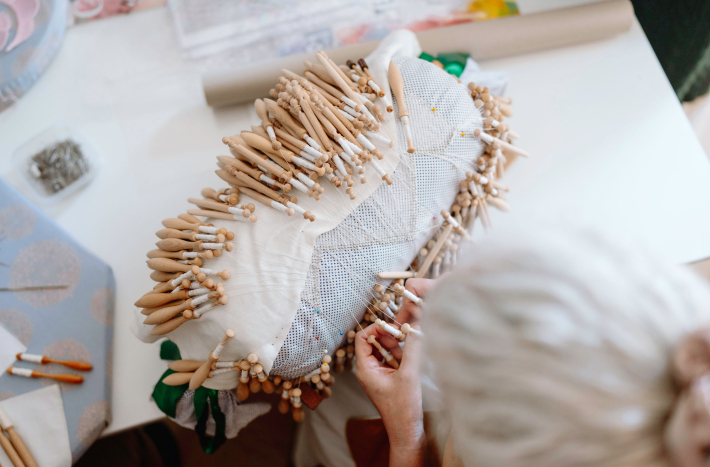Bobbin lace
Magnificent ruffs, softly folding engageantes, shawls, jabots, and all kinds of frills accentuated the
wealth and splendour of the outfits of the courtiers of aristocratic courts. Changing fashions shaped
new designs and decorations, but bobbin lace – the queen of all lace – reigned throughout Europe
for centuries.
About the Club
The Bobbin Lace Club is a meeting place for people who want to develop their passion and skills.
While working together, we gradually learn the methods of making bobbin lace and its history. We
recreate traditional patterns which were cultivated in European centres and design new ones in the
styles of different eras.
We also create large-scale shared projects at the Club. In these cases, we share tasks; each member
creates a designated piece of lace, and then we combine all the elements into one. The
implementation of such projects requires good preparation of patterns and precision of execution,
but the results can be surprising! One example of a piece that gave us a lot of satisfaction and joy is a
large colourful peacock made of lace fixed on canvas. Its uniqueness lies in the application of
approximately 40 different types of weave to create a beautiful mesh.
We draw patterns in detail and gradually introduce new stitches, thus learning in the process and
preparing to create our own projects. We are currently working on a lace shawl in the style of the
19th century. First, from many proposals, we jointly chose decorative motifs. Based on the samples
made, we developed the density and type of mesh, the layout and dimensions of the patterns, and
we also selected threads with the appropriate twist and thickness. Each of the people creating this
type of lace, called multi-pair lace, works on dozens of bobbins.
Practical information
Venue: the Lanci House
Dates: usually the second Saturday of the month
About the group leader
Contact
The Club is managed by:
Nela Kokoszka
m: nkokoszka@muzeum-wilanow.pl
t: 22 544 28 38
Downloads
We encourage you to get acquainted with the history of bobbin lace and to participate in our work!
Completed Club projects
We are currently working on a lace shawl in the style of the 19th century. First, from many
proposals, we jointly chose decorative motifs. On the basis of the samples made, we developed the
density and type of mesh, as well as the layout and dimensions of the patterns. We chose threads
with the right twist and thickness to match the patterns developed. The prepared patterns are of the
so-called multi-pair type. Therefore, during work, each of the lace-makers works on several dozen
bobbins.
Meetings with the Bobbin Lace Club
- On September 17, 2023, the Bobbin Lace Club presented its works at the Royal Festival of
Crafts. - On September 9, 2023, the Bobbin Lace Club took part in the Saxon Festival in Kutno.
- On June 25, 2023, we celebrated another International Day of Bobbin Lace. This time we met
in the courtyard of the Lanci House, our newly opened handicraft studio, in order to
promote the difficult art of lace-making together with our guests. - On June 6, 2022, we celebrated International Lace Day. On this day, lace-making enthusiasts
around the world celebrate by making lace in public space. Lace makers from many
countries took to the streets, parks and gardens or made lace at home, presenting it on the
International Lace Day Facebook page. - The Bobbin Lace Club also took part in the event – on Sunday morning, guests visiting the
Palace gardens had the opportunity to watch a close-up lace workshop and talk about the
passion for creating lace. - In 2017, an exhibition entitled Wilanów Atelier was organised where visitors could see lace
made by members of the club following 16th-century historical patterns. The designs come
from the first book for skilled lace makers, Le Pompe, originally published in Venice in 1557. - The exhibition was a great opportunity to observe how the type of threads, their different
thicknesses and colours change the final appearance of the entire lace. In addition to
historical designs, contemporary bobbin lace and original designs of Club members were
also presented for comparison, including the logo of the Museum of King Jan III's Palace at
Wilanów.
Joint lace works
We also do large lace works together in the Club. We divide the work into parts – each lace-maker
completes a designated piece of lace, and then we combine everything together. The preparation of
designs like this requires extraordinary precision before starting work. We draw stencils in detail and
gradually introduce new stitches, which is both a learning experience and good preparation for
members to create their own projects. Projects like these always bring surprising results. An example
is the colourful peacock which we worked on in 2021 and 2022, and whose uniqueness lies in the
use of approximately 40 different types of weave to create a beautiful mesh.
